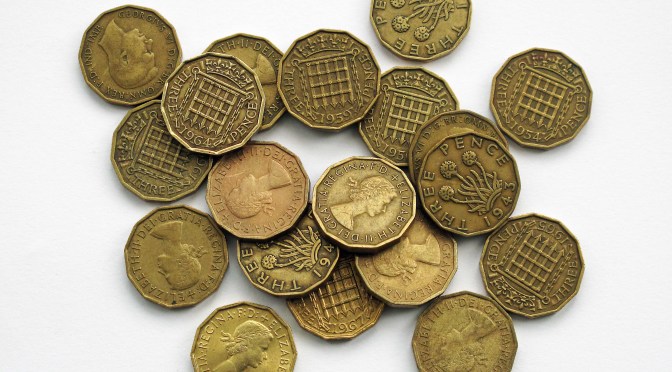Recently we have been exploring the theme of money with a group of care home residents who are suffering from the advanced stages of dementia.
With Gill Roberts from Alive! Activities, a collection of pre-decimal coins have provided a tangible set of tokens around which the residents have been able to reminisce. Stories have emerged about how much you used to be able to buy with a ‘thrupenny bit’ or a sixpence, and what you might have chosen to spend your pocket money on as a child. (Favourites included toffee apples, ice-cream, and a ride on the neighbour’s bicycle). The subject of wages also evoked familiar memories about saving or spending, about the price of bread and the cost of a weekly shop.
As a team, we have been interested in the capacity of money to provide the individual with a certain agency, where both cash and independence are often absent in the care home environment. Equally, I have been struck by the commonality of earning, using and exchanging money as a singularly unifying experience. While the presence or absence of money in our lives is usually divisive, the physical sensation of coins in our hands, given or received in exchange for goods or services, is instantly recognisable and communal. Money is a bond after all.
The residents also seemed to enjoy the money-themed music, singing along with Bing Crosby to ‘Pennies from Heaven’, with Tommy Steele for ‘We’re in the Money’ and accompanying Doris Day on ‘Three coins in the fountain’.
During our next visit we will be hosting a tea party and providing the residents with purses of threepenny coins, each of which they will be able to exchange for a choice of tasty treats on a pre-decimalised tea-time menu. I’m intrigued to find out what a cup of tea used to cost in 1942!

